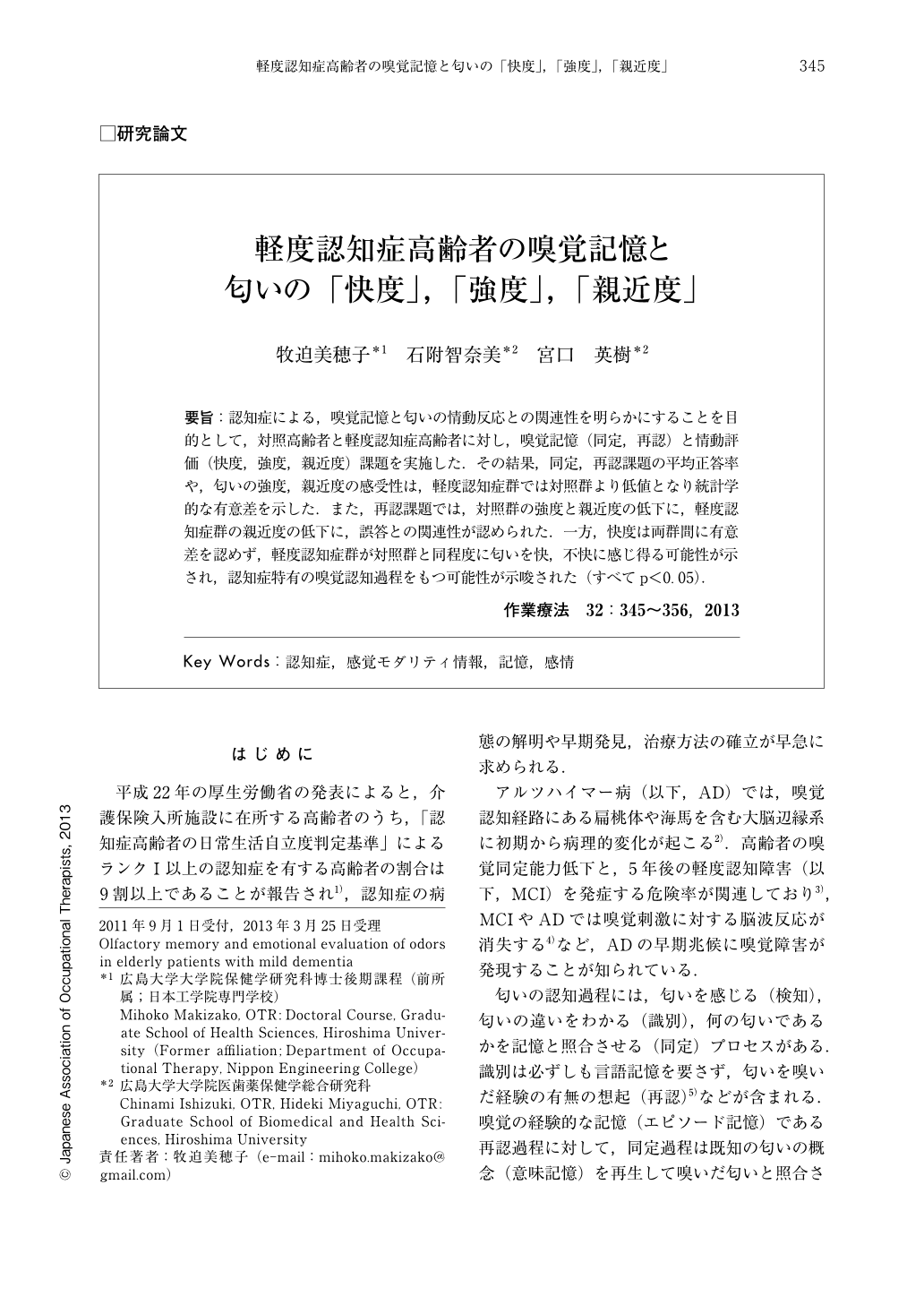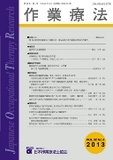Japanese
English
- 販売していません
- Abstract 文献概要
- 1ページ目 Look Inside
- 参考文献 Reference
要旨:認知症による,嗅覚記憶と匂いの情動反応との関連性を明らかにすることを目的として,対照高齢者と軽度認知症高齢者に対し,嗅覚記憶(同定,再認)と情動評価(快度,強度,親近度)課題を実施した.その結果,同定,再認課題の平均正答率や,匂いの強度,親近度の感受性は,軽度認知症群では対照群より低値となり統計学的な有意差を示した.また,再認課題では,対照群の強度と親近度の低下に,軽度認知症群の親近度の低下に,誤答との関連性が認められた.一方,快度は両群間に有意差を認めず,軽度認知症群が対照群と同程度に匂いを快,不快に感じ得る可能性が示され,認知症特有の嗅覚認知過程をもつ可能性が示唆された(すべてp<0.05).
Recently, olfactory impairment has been found to be an early sign of Alzheimer's disease. According to a 5-year longitudinal cohort study, impaired odor identification in the elderly can be a predictive factor for functional cognitive decline. In clinical situations, elderly patients with dementia have often exhibited olfactory impairment, although at times, it appeared that they could sense an odor emotionally. Anatomically, the olfactory pathway is near the hippocampus and the amygdaloid body, both of which affect emotions, and psychological studies report that the olfactory memory is more strongly connected to emotion than to the other four senses. However, there is limited understanding of the connection between the sense of smell and the emotions of elderly patients with mild dementia. In this study, we examined olfactory memory tasks (identification and recognition) and emotional evaluation tasks (pleasantness, strength, and familiarity) in elderly controls and elderly patients with mild dementia to observe the influence of emotional reactions to olfactory memory in mild dementia. We found that odor strength and familiarity ratings by the elderly with mild dementia were lower than those by the elderly controls. However, there were no significant differences between either groups in pleasantness ratings. In odor memory tasks, the mean correct answer rate by the elderly with dementia was also lower than that of the controls, and significant differences were found between both groups. In addition, regarding smell recognition, lower intensity and familiarity ratings may be associated with erroneous answers. These results suggest that elderly patients with mild dementia do have a lower olfactory ability, but they can still sense pleasant odors as well as a person without dementia. This indicates that they might have some means of processing odors cognitively.

Copyright © 2013, Japanese Association of Occupational Therapists. All rights reserved.


